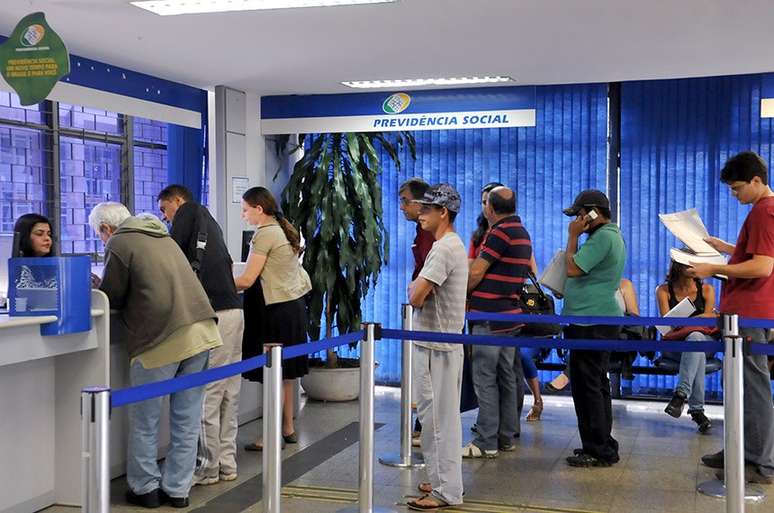The Court has defined the situations in which the Union and the States must offer the patient a medicine that is not available in the public health system; These criteria tend to reduce the judicialization in this matter.
We live in troubled times: Parliament carries out executions, politicians speak through chairs, and rhinos should have plenty of votes. The US Central Bank cuts interest rates, while the Brazilian one increases them. The Anthropocene is defining that the future of the Earth will be a raw lump of coal orbiting the Sun.
Despite the avalanche of bad news, we have one that must be understood and celebrated. It is a recent decision by the A Supreme Federal Court (STF)prepared by the minister Gilmar Mendes – and which was adopted unanimously by the court. It is topic 1.234.
In summary, the STF has defined the criteria for situations in which the Union and the Member States should be responsible for the provision medicines registered at National Agency for Health Surveillance (Anvisa)but not incorporated into the Unified Health System (SUS)as reported in this report from the Estadão. Since the provision is not mandatory, many requests have ended up in court.
Thus, finally, art. 196 of the Federal Constitution begins to come true: access to health is a duty of the State and a right of the citizen, built through public policies. Re-establishing rights is the role of the judiciary, but it cannot be achieved through political design – which is the activity of the executive. And, if there is no public policy that provides a link to the desire of the voter, the judiciary must ask the executive to establish such a policy. It is not up to the judiciary to design public policies.
The path to access a medicine
If a medicine has been registered by Anvisa and recommended by the National Commission for the Integration of Technologies in the Unified Health System (Conitec), then access to it must be guaranteed by the State – and the guardian of the law is the judiciary. Anvisa analyses the medicine from the point of view of safety and efficacy, while Conitec carries out the analysis from the point of view of technological evaluation to decide whether to recommend (or not) its incorporation, as is currently the path adopted in most civilized nations. today. With positive approval, the Ministry of Health must then integrate this remedy with the implementation of a policy to be designed and implemented. In this decision-making network, the price of the drug is also discussed with the industry.
It turns out that there is excessive judicialization so that the public system finances drugs that do not go through this rite and, therefore, do not reach the SUS – for the ministers, this situation puts pressure on the entire system, which already works with limited resources, and determines a climate of legal uncertainty. Now, with the decision of the STF, the criteria for obliging the Union and the States to provide medicines become clearer. It is a decision that has some noteworthy points.
When a patient goes to court seeking a medicine that is not registered in the country or whose use is not approved in Brazil (what we call off-label use), the burden of proving the safety, efficacy and superiority of the product will be on him. fall on the proponent and must be confirmed and supported by evidence-based medicine, that is, through double-blind randomized trials and/or meta-analysis.
It was also decided how the costs of court decisions should be addressed, most of which will fall under federal responsibility, but with a proposal to be discussed and implemented on how states and municipalities will participate in this coverage.
It is also necessary to create a single database with decisions to better direct the Judiciary: the federal bodies, in collaborative government with the Judiciary, will thus create a national platform for easy consultation for the citizen. It will centralize all information relating to administrative and judicial requests for access to pharmaceutical products.
The progress of this decision by the STF is fantastic in this regard. to bring a minimum of order to the so-called health judicialization process in the countrybut there are still some problems to be solved.
The first concerns the functioning of Conitec which, to best perform its functions, should be an autonomous body with respect to the Ministry of Health. Instead, it should be a central bank for the approval of new technologies for the SUS, similar to NICE, of the British health service.
The second issue concerns the complementary part to medicines: health products, that is medical devices and ancillary tests. It is worth mentioning, for example, heart valves that can be implanted without open surgery, the most modern stents, the use of ECMO – extracorporeal membrane oxygenation -, the indication of robotic surgery and less invasive radiotherapy. These goods, currently available at some centers of excellence, are also the result of a jurisdiction and should be the subject of a similar decision.
Therefore, the State will have to submit an approval process for the integration of new technologies and techniques that, once approved, will form the services to which all Brazilian citizens will have access.
And when I say “everything”, it must be the same. So this new body, this new Conitec, must act not only for the SUS, but also for integrative medicine, giving life to a single way of making available to citizens the technology that will improve the condition of health care delivery.
We must congratulate the Supreme Court of Justice of the country and recognize the importance of the decision proposed by Minister Gilmar Mendes. I have tried, in a simple way, to describe it here, but I recommend reading it especially to legal professionals. It is a valuable piece from the point of view of legal knowledge and will be fundamental for the future of the SUS, which is one of the most powerful tools available to the country to build a better and more egalitarian society.
Source: Terra
Ben Stock is a lifestyle journalist and author at Gossipify. He writes about topics such as health, wellness, travel, food and home decor. He provides practical advice and inspiration to improve well-being, keeps readers up to date with latest lifestyle news and trends, known for his engaging writing style, in-depth analysis and unique perspectives.








